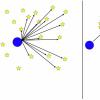Hi, the quoted study seems to be lacking in thoroughness and transparency. Within pooled studies, high degrees of heterogeneity and other methodological flaws make it hard to be sure of anything.
They claim to be able to exclude many confounding variables, but do not explain or quantify these claims of the variables not influencing the analysis. It is important in academic research to provide data and model simulations to back up claims. "Several potential confounding factors, including... population densities across the 25 states, were considered but did not appear to have significantly influenced these outcomes."
It also makes speculative & associative claims based on excess death analysis. Analysis based on excess deaths is notoriously fraught with selection bias, confounding variables, difficulty in accurate measurement, and viable alternate explanations (both in the case of excess and reduced mortality). Given the fact that this is limited to one country—Peru—the breadth of analysis (and the weight it carries) seems fairly limited.
I employ the readers here to pay closer attention to detail and purloin their ideas from a wider body of research, including mainstream research. It doesn't seem to receive much attention here. I think it's important to consider all perspectives, and to maintain an open mind and willingness to analyze new information—rather than ignoring anything which sits disagreeably amongst one's existing belief systems.
There are plenty of studies showing the opposite about Ivermectin and bringing light to the issue. Consider this review from April 2023—which succinctly summarizes a homogenous body of studies and points to more promising or safer OTC treatment options.





























































